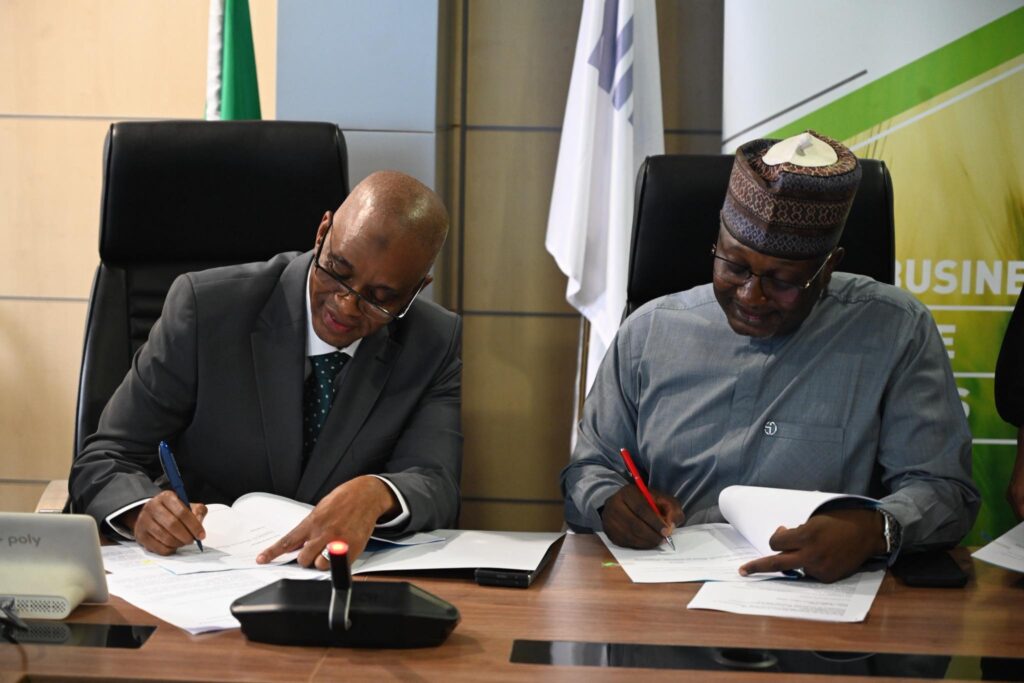The Nigeria Incentive-Based Risk Sharing System for Agricultural Lending (NIRSAL Plc) has announced a significant turn-around in its operations.
This rebound has led to mobilising of over ₦70 billion in commercial financing for agribusiness as at Q3 2025, its strongest annual performance since inception.
This result represents nearly a quarter of the organisation’s cumulative ₦270 billion assistance for agriculture and agribusiness from inception in 2013 to date, an achievement that signposts the impact of NIRSAL’s rebuilt strategy under its new Board and Executive Management.
The timing of this turnaround is critical:
Bank lending to agriculture had been in steady decline, falling from 6.18% of aggregate lending in 2022 to 4.82% in 2024, while sectoral growth slowed from 2.5% to 1.7% within the same period.
However, sequel to the signature tools applied for value chain modelling to address identified issues, providing technical support to agribusinesses and financial institutions, while deploying its risk-sharing frameworks, NIRSAL has won back lender’s confidence,thereby channelling fresh funds into key value chains, including grains, cocoa, shea, and livestock.
Part of its impact, can be seen in improvement in local production across key commodities and a positive balance of trade for agriculture, with over 32% of the mobilised sum directly supporting value-added commodity export.
Within the period under-review, agriculture’s share of bank lending has shot up again to 5.33% as of May 2025, showcasing renewed interest from financiers, in addition, two newly licensed banks have also entered the sector relying on NIRSAL’s frameworks, contributing to the ₦70 billion facilitated so far this year.
Reacting to this achievements, NIRSAL’s Managing Director/CEO, Sa’ad Hamidu, said: “₦70 billion may appear modest compared to the size of Nigeria’s agricultural financing needs, but the significance is profound. It proves that agriculture can be commercially and sustainably financed. With the right blend of capital, technical support, and risk mitigation, the sector can become more productive, resilient, and globally competitive.”
He added that NIRSAL remains confident of hitting its ₦150 billion target for 2025: “This is not yet the peak of the harvest season when merchants typically seek credit for offtake and storage, and when super agro-dealers stock up on fertilisers and inputs ahead of the next planting cycle. ”
Though the figures are encouraging, NIRSAL is not relenting but working to reshape the lending landscape for agriculture. With its integrated model, spanning prospect identification, deal structuring, business advisory, and credit guarantees, handholds agribusinesses from loan origination to disbursement, NIRSAL is chatting a new course.
More interesting is the fact that by providing tailored advisory and risk mitigation, businesses once deemed unbankable to gain access to sustainable credit are now smiling to the bank..
The bank is of the view that the ₦70 billion facilitated so far this year is a function NIRSAL’s sustained capacity-building efforts for financial institutions,which has seen over 1100 of its staff trained, who in turn have helped the agribusinesses understand better agricultural financing within its risk-sharing framework and increase in loan request approvals.
Similar training programs for agricultural value chain actors, including 450 participants trained on feedlot management, commodity export, and climate finance so far, will become increasingly evident over time, as capacity and confidence grow across these sub-sectors.
Going forward, NIRSAL is developing a digital network called the NIRSAL LandBank portal—’a connected ecosystem of agricultural stakeholders, from research and development to markets, to provide data-driven insights for investors, policy makers, and development partners for the identification of opportunities, risk reduction, and informed decision-making’.
‘The LandBank portal would become an additional channel for project development, with climate finance as another potential source of funding. This area of interest in Climate Finance has seen the bank recently signing an understanding with the Rural Electrification Agency to provide off-grid power to production and processing clusters in rural locations. These efforts, the institution believes, will build resilience into the agricultural value chain and aid Nigeria’s push toward a $1 trillion economy.
Recall in July, the Managing Director/CEO of NIRSAL Plc, Sa’ad Hamidu, received the Chairman of the Presidential Implementation Committee on Technology Transfer (PiCTT), Dr. Muhammed Dahiru, to discuss one of Nigeria’s most urgent agricultural needs: expanding irrigated farmland.
Both emphasized the link between irrigation, food security, and national stability, citing global examples like Ethiopia, which grew irrigated land from 5,000 hectares to 1 million hectares in just three years—transitioning from a wheat importer to an exporter.
At that occasion, NIRSAL and PiCTT have signed an MoU to collaborate on the Irrigate Nigeria Project to drive similar transformation in Nigeria.

The Managing Director/CEO of NIRSAL Plc, Sa’ad Hamidu, and the Chairman of the Presidential Implementation Committee on Technology Transfer (PiCTT), Dr. Muhammed Dahiru.
